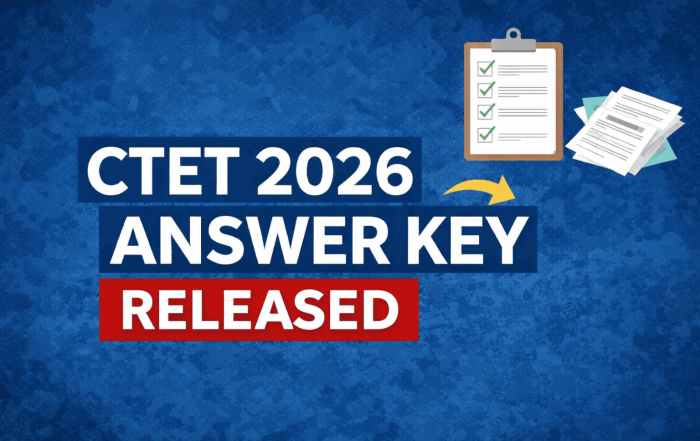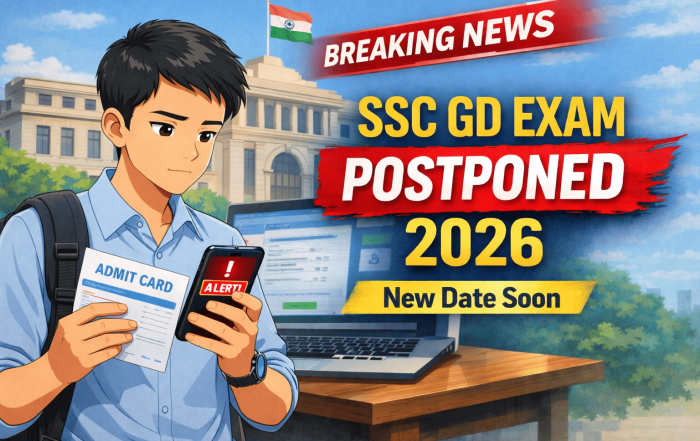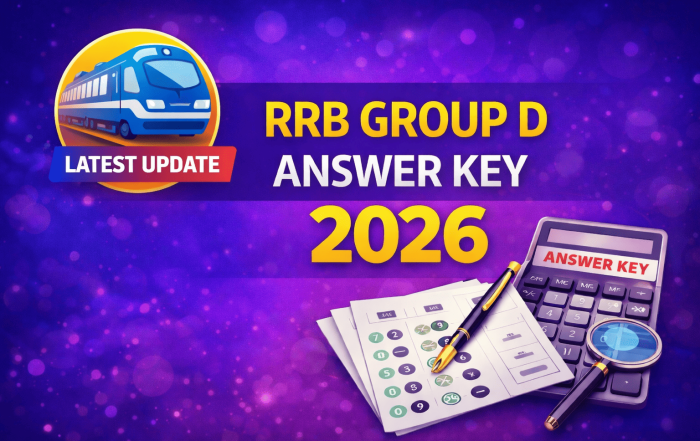RECENT POSTS
UPSC CAPF AC 2026 Notification – 349 Posts Apply Online
UPSC CAPF AC 2026 Notification Released The UPSC CAPF AC 2026 notification has been officially released by the Union Public Service Commission. This examination recruits candidates for the post of Assistant Commandant (Group A Officer) [...]
CMAT 2026 Result OUT Live: Download Scorecard & Cutoff
CMAT 2026 Result OUT! Check Your Percentile & Download Scorecard Now The National Testing Agency (NTA) has officially released the CMAT 2026 result on 17 February 2026. Candidates who appeared for the exam on 25 [...]
CTET Answer Key 2026 LIVE: Response Sheet & Objection Link
When Will CTET Answer Key 2026 Release? Check Marks & Direct Link The CTET Answer Key 2026 for the February session is expected soon on the official website ctet.nic.in. Candidates who appeared in Paper I [...]
SSC GD Exam Postponed 2026 — Official Notice
🚨SSC GD Exam Postponed 2026 — Official Notice The Staff Selection Commission (SSC) has officially postponed the SSC GD Constable CBT Exam 2026. The exam was scheduled from 23 February 2026, but will now be [...]
BOB Office Assistant Admit Card 2026 Download Link
📢 Bank of Baroda Office Assistant Admit Card 2026 Download Link The Bank of Baroda Office Assistant Admit Card 2026 was released on 15 February 2026 🗓️. Now candidates can download the BOB Office Assistant [...]
RPF Constable Final Result 2025 Live – Download Merit List PDF
RPF Constable Final Result 2025 (Live Update) The Railway Recruitment Board (RRB) has declared the RPF Constable Final Result 2025 on 16 February 2026. The merit list contains the roll numbers of 4205 finally selected [...]
CBSE Date Sheet 2026 Out: Class 10 & 12 Exam Dates
CBSE Date Sheet 2026 Out: Class 10 & 12 Exam Dates The CBSE Board Exams 2026 will begin on 17 February 2026. Class 10 exams will end on 11 March 2026, while Class 12 exams [...]
RBI Assistant 2026 Notification: 650 Vacancies Apply Online
RBI Assistant 2026 Notification Released The RBI Assistant 2026 notification has officially announced 650 vacancies across multiple RBI branches in India. Therefore, graduates looking for a stable banking career now have an excellent opportunity. In [...]
RRB Group D Answer Key 2026 Download Link & Objection
RRB Group D Answer Key 2026 Download Link The RRB Group D Answer Key 2026 for CBT 1 (CEN 08/2024) is expected in February 2026. Since the exam was conducted from 27 November 2025 to [...]
GATE 2026 CSE Expected Cut Off & Safe Score Analysis
GATE 2026 CSE Expected Cut Off The GATE 2026 CSE expected cut off for the General category is likely to fall between 30–32 marks after normalization. The Computer Science paper was conducted in two shifts, [...]










